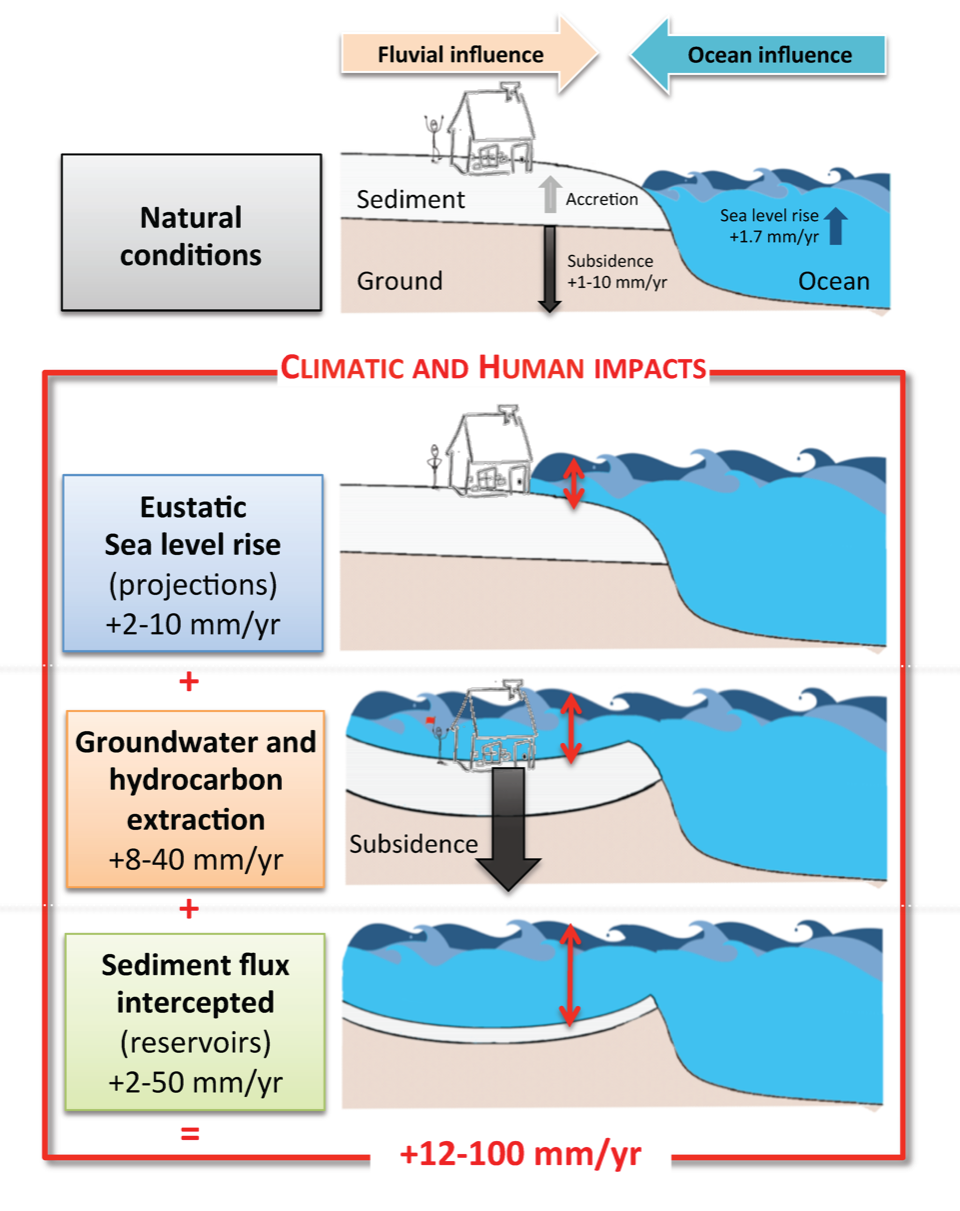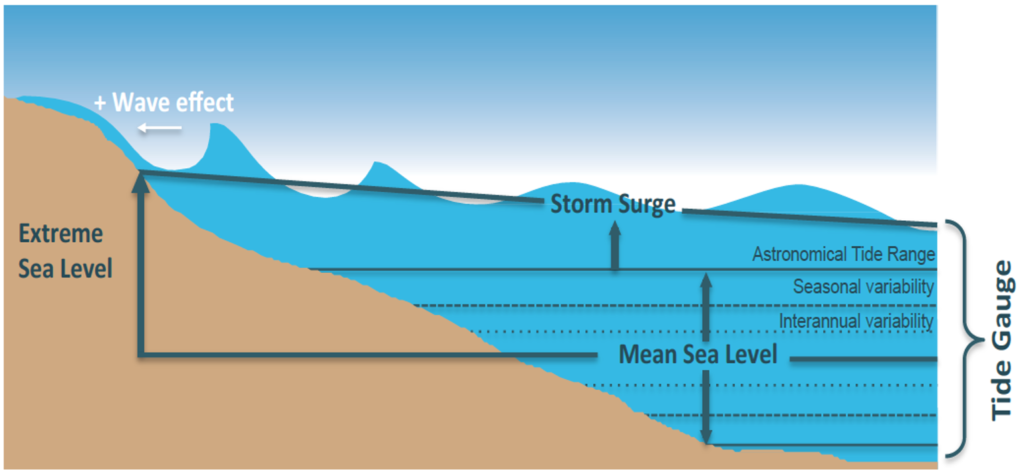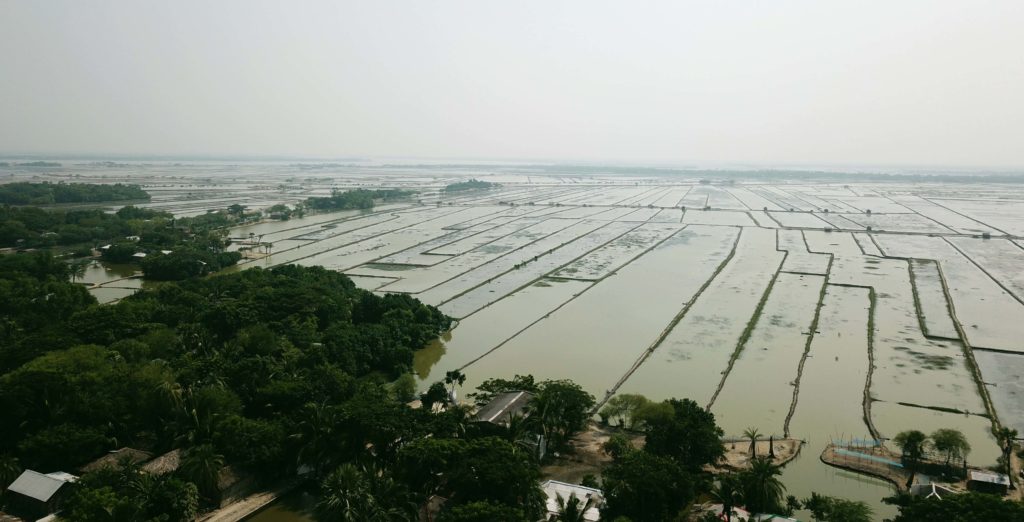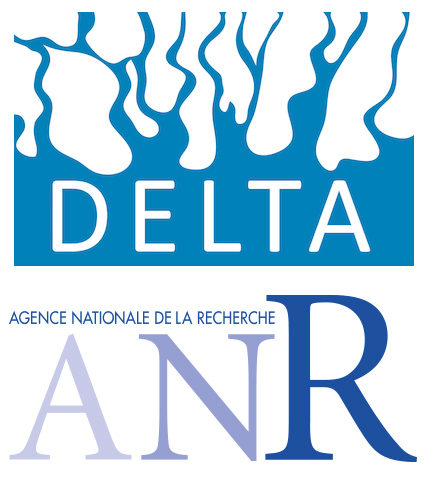
Context of the DELTA project:
Deltas are dynamic systems that are governed by interactions between river and oceanic processes. Relative sea level rise (RSLR, Figure 1) and sea level extremes (ESL, Figure 2), combined with a rapidly growing population and the increasing impact of human activities on the basins, directly threaten the communities of the deltas. Despite the importance of RSLR-ESL interactions in deltaic regions, and particularly in tropical regions, only a handful of studies have been conducted on this topic. To date, global projections of RSLR-ESL, which include mean sea level, vertical land movements, tides, waves and storm surges do not exist. It is in this context that the DELTA project emerged with the aim of advancing our understanding of the processes, related to RSLR-ESL, that impact coastal flooding in deltaic regions.
Classical probabilistic methods applied today, for example, to the design of coastal defenses (concepts of return level and return period) assume stationarity in the statistics of historical storms, in the sense that their statistical properties do not change over time. However, many studies have shown that the effect of long-term climate variability, climate change and human interventions result in a lack of stationarity. However, if these data have non-stationary variance, then there could be more extreme events than predicted by the classical stationarity theory.

Moreover, coastal flooding results not only from non-linear interactions between ocean processes, but also from hydrological and meteorological events and vertical land movements. This “compound” event depends on the nature and number of physical processes, spatial and temporal scales, and the strength of dependence between these processes. We therefore need to study how to represent and model these compound events.
Scientific objectives of the DELTA project:

1- Adapt the statistical framework of ESL events as a time-varying analysis in the specific case of coastal flooding.
2-Adapt the statistical framework for predictions of composite RSLR-ESL events generating coastal flooding by taking into account their temporal and multidimensional variability .
3- Provide practical applications of RSLS-ESL analysis to improve estimates of the vulnerability of populations in coastal areas.
